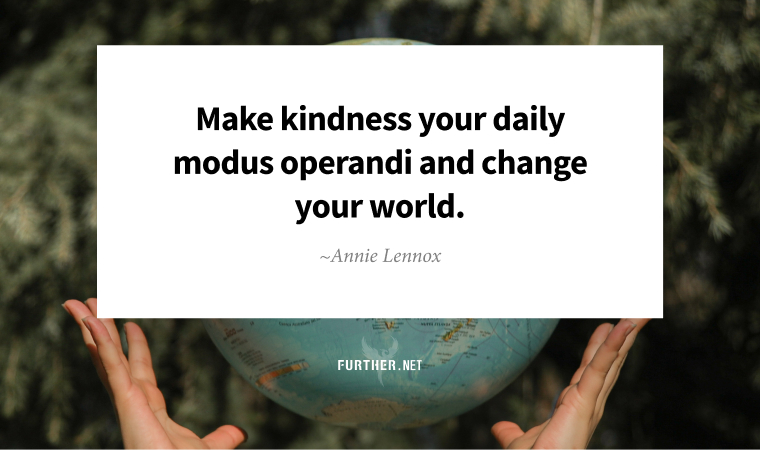
Over the past few years, the world has become particularly cruel (and not to be kind) thanks to the global pandemic, societal turmoil, and political divisiveness, among other nastiness. It’s no coincidence, then, that popular TV shows like Ted Lasso suggest it’s time to bring human kindness back en vogue.
While that’s a nice idea, making daily random acts of kindness a priority might seem frivolous, especially if you’re one of the millions grappling with depression or anxiety — one of the most common mental health disorders, affecting one in three adults.
But now, new research indicates that being altruistic can be as beneficial to the person who’s making the effort as it is to the recipient. And best of all, science shows a little thoughtfulness goes a long way.
The Good Thing About Kindness
There’s a lot of empirical evidence that links generosity with health. From lower blood pressure to a stronger immune system and boosted serotonin and dopamine (the “happy hormones”), kindness is not just a moral value but also a vital component of physical and mental well-being.
In a new study conducted by Ohio State University’s psychology department, researchers tested the efficacy of a traditional cognitive behavioral therapy technique (keeping a “thoughts” journal), planning social activities, and performing random acts of kindness as ways to address anxiety or depressive symptoms. The results surprised researchers, as the study’s co-author Jennifer Cheavens said:
We did think that, if there was going to be an advantage of one group over another, it might be the thoughts record group, since that’s such a tried-and-true way of addressing depressive [and anxiety] symptoms. But the kindness group did as well or better, and that group also had increases in social connection that didn’t happen in the other two groups.
A simple solution that can complement therapy with no side effects! Given that the Surgeon General recently issued an advisory about the loneliness epidemic, now’s the perfect time to connect in person and in charitable ways.
Considerate Done
So, what exactly is a “random act of kindness”? The authors of the study defined it like this:
Big or small acts that benefit others or make them happy, typically at some cost to yourself in terms of time or resources.
The subjects complied in a variety of ways, from buying coffee for a stranger to making cookies for friends and shoveling snow for a neighbor. Despite their own challenges, they willingly complied with acts of kindness — perhaps because it was a chance to stop ruminating on their issues and instead focus on other people. As it turns out, the social connection was the cheery on top. (Nope, that’s not a typo. Hopefully, it made you smile. 😀)
How Small Acts of Kindness Can Help With Anxiety (Greater Good)
